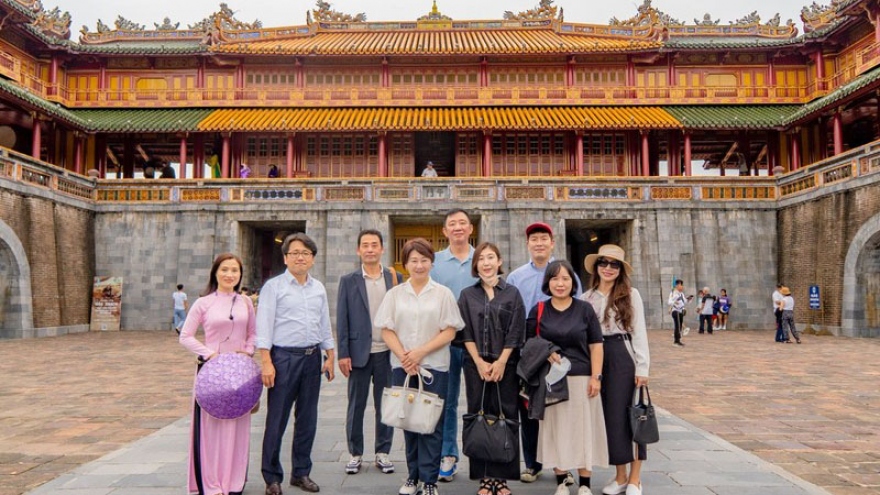Solutions sought to lure international film producers to Vietnam
Solutions to attract film producers to localities were the focus of a seminar jointly organised on November 23 by the Cinema Department under the Ministry of Culture, Sports and Tourism, the Department of Culture and Sports of Ho Chi Minh City, and the Ho Chi Minh City Institute for Development Studies.

The event was part of the 24th Vietnam Film Festival, which is being held in Ho Chi Minh City.
Speakers and industry experts discussed international experience in developing film-friendly environments, support policies for production crews, regional coordination and cross-border partnerships in the film industry.
Nguyen Thi Thu Phuong, Director of the Vietnam Institute of Culture, Arts, Sports and Tourism, said Vietnam must quickly address bottlenecks in regulatory procedures, incentives and taxation to draw international producers. She added that linking cinema with tourism and other art forms would broaden the industry’s reach.
For HCM City specifically, Phuong suggested adopting a model similar to Hanoi, which has issued a dedicated resolution for the film sector to create an open investment environment, nurture creative talents and build a one-stop film production centre.
Phan Thanh Hai, Director of the Department of Culture and Sports of Hue city, said the city has streamlined support procedures for film crews, usually completing administrative steps within one to two days. Authorities assist with location scouting, security at heritage sites and local publicity to promote shoots and destinations.
Experts from France, Australia and Singapore noted that Vietnam lacks a formal policy framework for filmmakers and recommended establishing a centralised film commission — a model widely adopted in other markets for feature film, television and commercial production.
Singapore-based producer Andy Ho of Rice Content and Media said Vietnam holds strong advantages in terms of landscape, cost and culture, but standardised services remain a key concern for international producers. A transparent, unified system for information, permitting and production services would make the market more competitive for major commercial projects, he stated.
Australian director Paul Brenner said local production capacity needs to be stepped up, as international crews often hesitate due to limited technical personnel, specialised equipment and on-set coordination standards. He further added that investment in training, technical and logistical ecosystems, and professionalised workflows would help Vietnam compete with regional production hubs.
The seminar also saw the launch of the “Ho Chi Minh City – A Premier Film Production Destination” handbook — the city’s first major initiative since being recognised as a UNESCO Creative City of Cinema. The 64-page, full-colour English-language guide was produced with technical support from the French Embassy in Vietnam and international film experts. It provides information on locations, services, infrastructure, support processes, contact networks and available resources for production in the city.
Vice Chairwoman of the municipal People’s Committee Tran Thi Dieu Thuy said the handbook not only offers practical value for film crews but also marks the city’s first step towards building a dynamic, efficient regional production hub.
Paul Abela, Audiovisual Attaché at the French Embassy, said the handbook will give filmmakers clearer insights into producing films in Vietnam. He highlighted the long-standing cinema ties between France and Vietnam and noted that France’s extensive industry experience and festival network shaped its contribution to the guide’s development.



